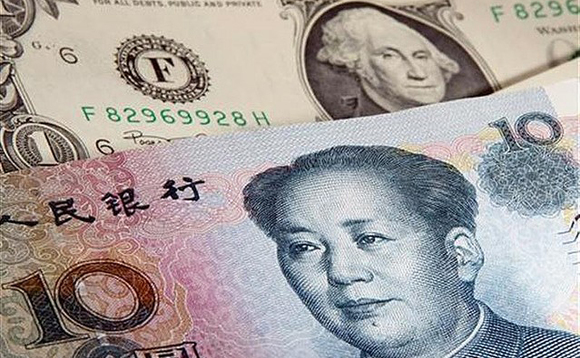
Hony’s bumper raise sparks concerns about China fund sizes

How much is too much? Hony Capital set the benchmark for the string of large China-focused funds expected to launch in the next year or so as it closed its fifth vehicle at $2.4 billion. Hony Capital Fund V took barely four months to complete its fundraising, coming in nearly $1 billion larger than its predecessor, which closed in 2008. It is the biggest US dollar vehicle seen in China since Hopu Investment Management attracted $2.5 billion for its one and only fund, also in 2008.
Factor in Hony's second renminbi-denominated fund, which has closed at RMB10 billion ($1.6 billion) - the largest ever independent local currency vehicle - and the private equity firm has more fresh capital at its disposal than any Chinese player in history.
It has prompted some industry participants to ask whether such a large sum can be efficiently deployed, raising further questions about the sustainability of China fundraising if it continues on this trajectory. "It's too big - Chinese funds are always too big nowadays. But Hony is one of very few groups with real value-add. They have a strong culture and a strong team," says one LP who backed the US dollar fund.
These sentiments are echoed throughout the investor community, among LPs that made allocations to the fund as well as those who chose to steer clear, claiming they were spooked by the size of the vehicle.
Broader LP base
Hony is unlikely to miss the non-participants. Its first fund had only one investor, parent company Legend Holdings, while its second and third vehicles are said to have secured fewer than 25 LP commitments between them. Goldman Sachs, Temasek Holdings and Sun Hung Kai were among the early backers.
By the time of the fourth fund in 2008, however, the PE firm's track record had won over some of the biggest institutions. According to AVCJ Research, California State Teachers Retirement System (CalSTRS) and Canada Pension Plan Investment Board participated. Sources tell AVCJ that around 45 LPs applied to commit more than $1.4 billion to the fund and another 70 or so were on the sidelines looking for a way in.
It was likely a similar situation with fund five, giving Hony the opportunity to further diversify its investor base.
Concerns about the size of the fund tend to focus on the limited availability of large ticket deals in China. If the average deal size is $30-60 million, how many transactions can Hony feasibly do during the investment period with its current human resources?
In this respect, the comment made by Hony CEO John Zhao when announcing the fund is instructive. "Changes that were not found in foreign markets over the past two or three decades are taking place in China," he said. "The emergence of China provides rare opportunities for China's PE insiders to explore a new way with Chinese characteristics based on our experience in the Chinese market."
The firm, which had invested in over 60 Chinese companies by the end of 2011, will continue to pursue a twin-prong strategy of reforming state-owned enterprises (SOEs) and backing growth capital companies. Zhao appears to be referring to the former.
Hony is credited with having developed some strong government relationships that have allowed it to reach deeper into the SOE sector than many of its rivals. China Glass is seen as one of the firm's biggest successes. Hony invested in the flat glass manufacturer - then known as Jiangsu Glass Group - in 2004, took it public in Hong Kong a year later, and then supported an acquisition spree of other state-owned glass assets that has brought much needed consolidation to the sector.
The private equity firm is engaged in similar process in Shandong province, having been chosen by the Qinhuangdao government in 2007 as the sole strategic investor involved in the privatization of local glass companies. It merged several manufacturing operations to create what is now known as China Yaohua Glass.
If Hony can develop its sweet spot for SOE restructuring then perhaps larger deals would be within reach of the latest fund, but not everyone is convinced. "SOE restructuring is easier said than done - others have tried to do it and failed," says an LP who passed on the fund. "It is labor intensive and also intensive post-investment in ways that you would not see in a private company."
A new approach
All investors fret about GPs raising too much money and then being forced to compromise their investment strategy in order to deploy the capital, usually to the detriment of returns. The increasing number of PIPE deals and pre-IPO investments is seen as evidence that some Chinese funds are already struggling to find enough deals in a hyper-competitive market.
Bob Partridge, managing partner for Greater China transaction advisory services at Ernst & Young, has a different take. He is ambivalent as to whether China private equity is at a similar point to the US circa 2007 - raising mega-funds that turned out to be difficult to deploy and then retreating (a process that was exacerbated by the onset of the global financial crisis).
Not only might the China fundraising cycle last longer due to continued rapid economic growth, but ultimately PE firms will also refine their strategies in order to deploy the larger pools of capital, moving away from traditional private equity and into the hedge fund space. Local LPs would have no objections, Partridge argues. "Local LPs only care about returns. They have yet to define themselves along the lines of Western LPs and so don't insist on sticking to strategy."
It adds another twist to Zhao's remark that local firms are in a position to "explore a new way with Chinese characteristics." But the returns will still have to stand up to scrutiny.
Latest News
Asian GPs slow implementation of ESG policies - survey
Asia-based private equity firms are assigning more dedicated resources to environment, social, and governance (ESG) programmes, but policy changes have slowed in the past 12 months, in part due to concerns raised internally and by LPs, according to a...
Singapore fintech start-up LXA gets $10m seed round
New Enterprise Associates (NEA) has led a USD 10m seed round for Singapore’s LXA, a financial technology start-up launched by a former Asia senior executive at The Blackstone Group.
India's InCred announces $60m round, claims unicorn status
Indian non-bank lender InCred Financial Services said it has received INR 5bn (USD 60m) at a valuation of at least USD 1bn from unnamed investors including “a global private equity fund.”
Insight leads $50m round for Australia's Roller
Insight Partners has led a USD 50m round for Australia’s Roller, a venue management software provider specializing in family fun parks.








